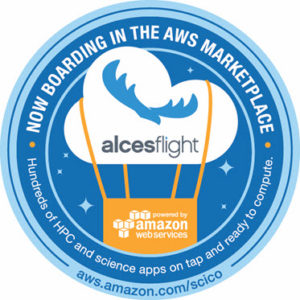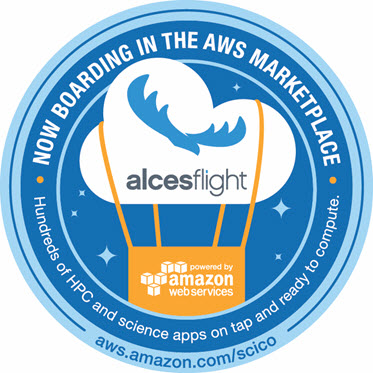 Today AWS announced the Alces Flight portfolio of Software-as-a-Service (SaaS) offerings provides researchers with on-demand HPC clusters or ‘self-service supercomputers’ in minutes. With hundreds of science and HPC apps available in the AWS Marketplace, Alces Flight helps you automatically create a research-ready environment that complements Amazon Elastic Block Store (EBS), Amazon Simple Storage Service (Amazon S3), and Amazon Elastic Compute Cloud (Amazon EC2) resources in the AWS Cloud.
Today AWS announced the Alces Flight portfolio of Software-as-a-Service (SaaS) offerings provides researchers with on-demand HPC clusters or ‘self-service supercomputers’ in minutes. With hundreds of science and HPC apps available in the AWS Marketplace, Alces Flight helps you automatically create a research-ready environment that complements Amazon Elastic Block Store (EBS), Amazon Simple Storage Service (Amazon S3), and Amazon Elastic Compute Cloud (Amazon EC2) resources in the AWS Cloud.
In the past, researchers often had to wait in line for the computing power for scientific discovery. With Alces Flight, you can take your compute projects from 0 to 60 in a few minutes. Researchers and scientists can quickly spin up multiple nodes with pre-installed compilers, libraries, and hundreds of scientific computing applications. Flight comes with a catalog of more than 750 built-in scientific computing applications, libraries and versions, covering nearly everything from engineering, chemistry and genomics, to statistics and remote sensing. After designing and managing hundreds of HPC workflows for national and academic supercomputing centers in the United Kingdom, Alces built and validated HPC workflows tailored to researchers and automated applications built for supercomputing centers. They are now making that catalog available in the AWS Marketplace.
How easy is Alces Flight to use? Amazon’s Jeff Barr has posted a quick hands-on tutorial.
“Each cluster is launched into a Virtual Private Cloud (VPC) with SSH and graphical desktop connectivity. Clusters can be of fixed size, or can be Auto Scaled in order to meet changes in demand. Once launched, the cluster looks and behaves just like a traditional Linux-powered HPC cluster, with shared NFS storage and passwordless SSH access to the compute nodes. It includes access to HPC applications, libraries, tools, and MPI suites.”
Sign up for our insideHPC Newsletter




